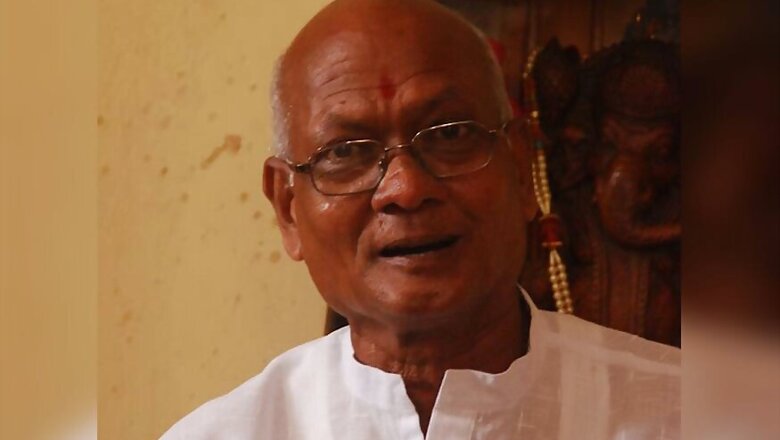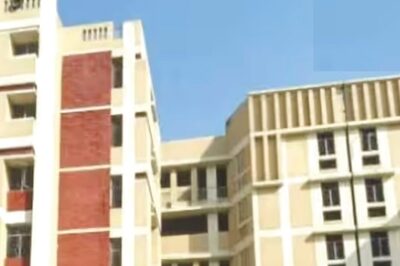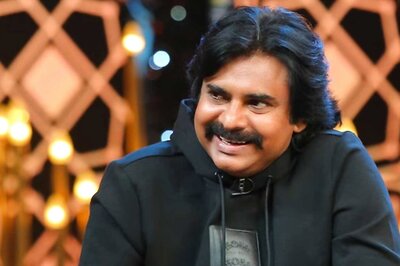
views
Nagpur: People fondly call him 108. Madhukar Kukde, who won the Bhandara-Gondia Lok Sabha by-election on an NCP ticket defeating BJP candidate Hemant Patle, is 67 years of age, but his agility and his ever-readiness to rush to the help of the needy across the vastly spread constituency has won him this name: 108.
He’s like the 108 ambulance that patients frantically call when in need, his supporters quip.
A three-time BJP legislator who switched over to the NCP in 2014 and went into political oblivion until his name sprung up as a low-profile candidate for this by-poll. Devoid of financial resources against a mighty BJP poll apparatus and apparently at the mercy of the NCP satrap and former civil aviation minister Praful Patel, Kukde was a dark horse in the race.
The by-poll was necessitated after the resignation of former BJP MP Nana Patole, who crossed over to his parent party, the Congress, late last year, after an alleged tiff with the BJP’s national leadership.
The seat is from the NCP quota – Patel’s home turf; the Congress did not press for it to be given to Patole, who did not want to contest either for a mere one-year-term. Patel and Patole in fact buried the hatchet and publicly showed that they had patched up in the interest of the opposition unity.
Kukde’s name was proposed by Patel for two reasons: the simpleton veteran could not be a threat and would not stake any claim to a ticket in 2019 and even if the NCP lost, it won’t come as a major blot on Patel himself.
All through the electioneering the major buzz in Bhandara and Gondia was that Patel did not want Kukde to win this election for obvious reasons and thus did not support him with the party or individual kitty, compared with the high profile campaign that the BJP ran in favour of their own candidate, Hemant Patle.
Patel had publicly said in one of his speeches that this arrangement was only for a short term and not for 2019, implying that Kukde won’t naturally have a claim to the next election.
It was a point that the BJP played on when its leaders publicly described Kukde as a “scape-goat” of the opposition and a non-serious candidate. Kudke eventually wrested the seat by over 48,000 votes.
How did Kudke win against a formidable BJP has many lessons for the opposition, particularly the Congress party, which came a poor fifth in the ‘Palghar’ Lok Sabha by-poll in a trend that confirms a continuing slide of the party in a state it ruled for 15 years not so long ago.
Masses versus Leaders
The first binary that emerges from the Bhandara-Gondia by-poll is that this was an election in which the masses won against stalwarts – Patel of the NCP on the one hand who was perceived to be not keen for a Kukde victory, the BJP’s bandwagon that included of Chief Minister Devendra Fadnavis and Union Minister Nitin Gadkari, et al, on the other hand.
People said if big leaders – including Gadkari and Fadnavis who were said to be responsible for Kukde not getting a ticket from the BJP in 2014 Assembly elections – were not supporting Kukde, they were.
It was a local election, fought on local caste equations, with no resonance to national theme. Despite its financial resources and formidable poll machinery, the BJP could not push its candidate to a win.
Kukde is a ‘Kunbi’, a creamy layer of the OBCs. Patle, the BJP candidate, is a Powar, another major caste in this constituency. So it was a Kunbi versus Powar battle.
Nana Patole, a Kunbi, was obviously a key player, since he had positioned this election as one of his own, where he was to prove his domination, but fact is that Patole’s influence among voters and his standing within his own community and the Congress – notwithstanding the perception in New Delhi – does not cut ice with others. There are other communities, including the Dalit Ambedkaries (Buddhists), who do not trust Patole ever-since the Khairlanji incident when he led an anti-Dalit campaign to mobilise OBCs.
While Patel, the NCP stalwart, remains a major influence over this constituency, he does not play any role when it comes to a battle between caste-combination.
The NCP-Congress poll machinery was no match for the BJP election machinery, and financial and administrative advantage.
With this as a context, the OBC mass, led by the dominant Kunbis, came out overwhelmingly in support of Kukde, and turned what a fortnight ago looked like a one-sided election into a contest.
The BJP had won the 2014 election by a margin of 3 lakh votes in a Modi wave. Patole was the winner, Patel the loser. While Kukde was the NCP candidate this time around, it was finally the perception that the BJP and Patel would defeat a ‘Kunbi’ drove the community and his support base to vote for him.
That Kukde commanded a clean and people-oriented image and someone stacked against a formidable force brought him the much-needed support from other communities, including the Dalits, who did not allow their votes to be cut by the Prakash Ambedkar-led party’s candidate to give the BJP any edge.
The fight turned a one-on-one, with the entire opposition voter-base in-tact.
Add to it the general unrest growing within the farmers against the BJP governments at the Centre and in the state and the local issues boiled over. Bhandara and Gondia are in drought after a failed monsoon. Paddy growers had virtually no support on any front. The CM or his cabinet that campaigned in the by-poll could hardly promise anything new or enlist the initiatives that had aided a struggling peasantry.
In the end, on the day of voting, the wide-spread perception driven by complaints about EVM failures that the BJP was “managing” the elections led the voters to in fact vote against the BJP, it now turns out from the voter trends. No wonder, Kukde got heavy leads in four of six Assembly segments, including his home turf of Tumsar from where he had won three Assembly elections, where the BJP polled heavily in the 2014 elections that saw Patole defeat Patel. Kukde trailed only in two urban constituencies by a margin of about 3000 votes: Gondia, Patel’s home town, and Bhandara, a reserved (SC) seat.
In the last two days, it turned into a battle not between two castes, but between people and leaders.
To his credit, Patel made amends in the last leg when the message went out to him from the people that leaving Kukde high and dry would not bode well for him in the long run in this constituency.
That the NCP leaders Ajit Pawar and newly appointed state president Jayant Patil rushed to Bhandara and Gondia to address public meetings in the last leg aided Kukde.
Local political watchers say it would now be difficult for Patel, a Rajya Sabha member, to stake a claim to an NCP ticket for 2019 Lok Sabha election, unless Kukde himself backs out from the race.
If the veteran is denied a ticket, the community with a formidable vote share would revolt.
Grassroots versus big trees
Kukde’s victory was also shaped by a groundswell of support from the Congress’ grassroots workers, who went door to door to convince masses to vote for him and not the BJP.
It was a kind of silent mass campaign that the Congress had not tested in ages, sans any fanfare or the financial support. Five of the six Assembly segments that fall under this Lok Sabha constituency are erstwhile Congress strongholds, now with the BJP. It was Patole’s switch to the BJP in 2014 that brought the Kunbi votes to the saffron fold. With Patole back in the Congress and Kukde, a candidate, this vote seems to have deserted the BJP this time around.
For a Congress worker in Bhandara and Gondia, Kukde’s victory was the first occasion in long, long time to rent the air with ‘Gulal’ to celebrate a victory – and they did so on Thursday with a sack-full.
An indifferent state Congress leadership did not even bother to go to Bhandara-Gondia for election campaigning, let alone sending any financial aid or other support to the local party workers. It was left to Patole and other local leaders to take a call on supporting Kukde. It turns out the Congress workers went out of the way and worked well in tandem when they were left to fend for themselves.
Among the Kukde’s formidable supporters in this by-poll were the Congress’ grassroots workers, who got a chance after a long time to play centre stage and manage an election that was theirs for a taking.
Several local Congress leaders saw in this election an opportunity to reconnect with the masses and test the waters for their cause in the next assembly and local body elections.
Ironically where the Congress’ state leadership engaged – Palghar – the party finished a poor fifth and failed to save their candidate’s election deposit. That the State Congress leadership stands disconnected with their own party workers and masses is no more an open secret.
(The author is a Nagpur-based journalist and a volunteer for the People’s Archive of Rural India. Views are personal)



















Comments
0 comment